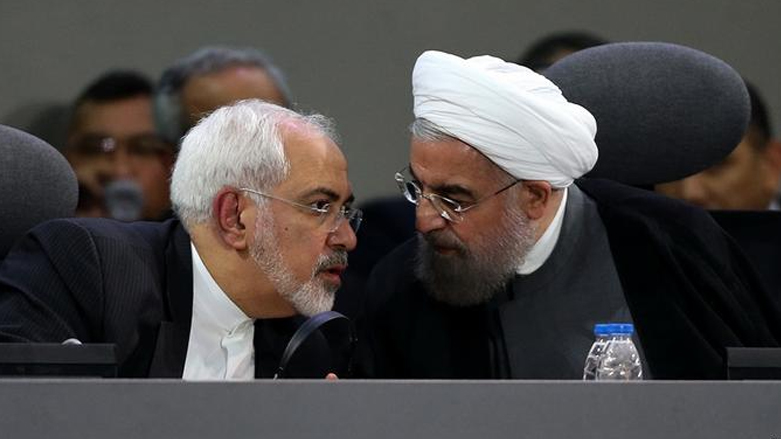Amid US-Iran tensions, senior Iraqi officials talk mediation, sanctions with FM Zarif

ERBIL (Kurdistan 24) – Iranian Foreign Minister Mohammad Javad Zarif held talks with senior Iraqi officials in Baghdad to discuss the latest regional and international developments amid escalating tensions between Washington and Tehran.
Zarif arrived in the Iraqi capital late Saturday, hours after he described as “extremely dangerous” an earlier US decision to deploy 1,500 additional troops to the Middle East, which Washington said were part of efforts to deter Iran from attacking its forces and allies in the region.
Amid ongoing tensions, Iranian military officials have said they do not want war but affirm that they would take retaliatory measures should they detect what they believe to be hostile action by US forces in the region.
During their meeting, Iraqi President Barham Salih and FM Zarif discussed “the need to prevent war and escalation” between the US and Iran and “adopt a constructive dialogue to consolidate the foundations of peace in the region,” according to a statement from Salih’s office.
The two also highlighted “the importance of exerting joint efforts to spare the region the harms of sanctions and reach political solutions to the current crises,” the statement added. The topic of sanctions also came up in Zarif’s meeting with Iraqi Prime Minister Adil Abdul-Mahdi.
The US has re-imposed multiple rounds of punitive sanctions on Iran since it withdrew last year from the nuclear deal – formally known as the Joint Comprehensive Plan of Action (JCPOA) – that Tehran signed with major international powers. The US moves have damaged the Iranian economy as the country’s exports, most notably oil, have substantially declined, limiting national income.
Iraq mainly depends on gas imports from Iran to feed its power grid, which, as the sweltering heat of the summer months rolls over, become increasingly strained as demand for electricity soars. Washington has granted waivers to Baghdad to continue importing fuel from Iran but has asked to find an alternative source, as it has other purchasers of the commodity.
Iran’s Islamic Revolutionary Guards Corps (IRGC) has also threatened they would block passage through the Strait of Hormuz should the US choke their economy through the sanctions. Iraqi Oil Minister Thamir Ghadhban expressed worries that this outcome would occur should the US further bolster its presence in the Middle East during an interview with local media.
Along with “sparing the harms of sanctions,” Zarif and Abdul-Mahdi also highlighted preventing “the dangers of war,” a statement from the Iraqi PM’s office said, with the two exploring further “how to maintain the nuclear deal.”
In early May, Iranian President Hassan Rouhani announced Tehran was reducing its commitments to the JCPOA, which other consignees, namely the United Kingdom, France, Germany, China, and Russia, seek to maintain with Iran after the unilateral US withdrawal.
Last week, PM Abdul-Mahdi said his country would send delegations to Washington and Tehran to help ease tensions amid fears of a confrontation between the United States and Iran and proxy war in Iraq between US forces and Iran-backed militias. The Guardian previously reported that IRGC commander Qasim Soleimani had told leaders of Iraqi militias his country supports to prepare for such an eventuality in a recent meeting in Tehran.
Iraqi parliament speaker Mohammed al-Halbousi told state television that Baghdad was ready to act as an intermediary between the United States and Iran if asked to do so.
“We are ready to mediate a solution to the crisis between Washington and Tehran if we are asked to do so,” Halbousi said, but noted that there was yet no “formal request for such mediation.”
The speaker himself, according to an informed government official, would act as an envoy between Washington and Tehran while President Salih would court Gulf countries such as Saudi Arabia and the United Arab Emirates. Tehran has no direct diplomatic ties with these powers. The source could not immediately specify when the Iraqi officials would begin such visits.
Editing by Karzan Sulaivany
